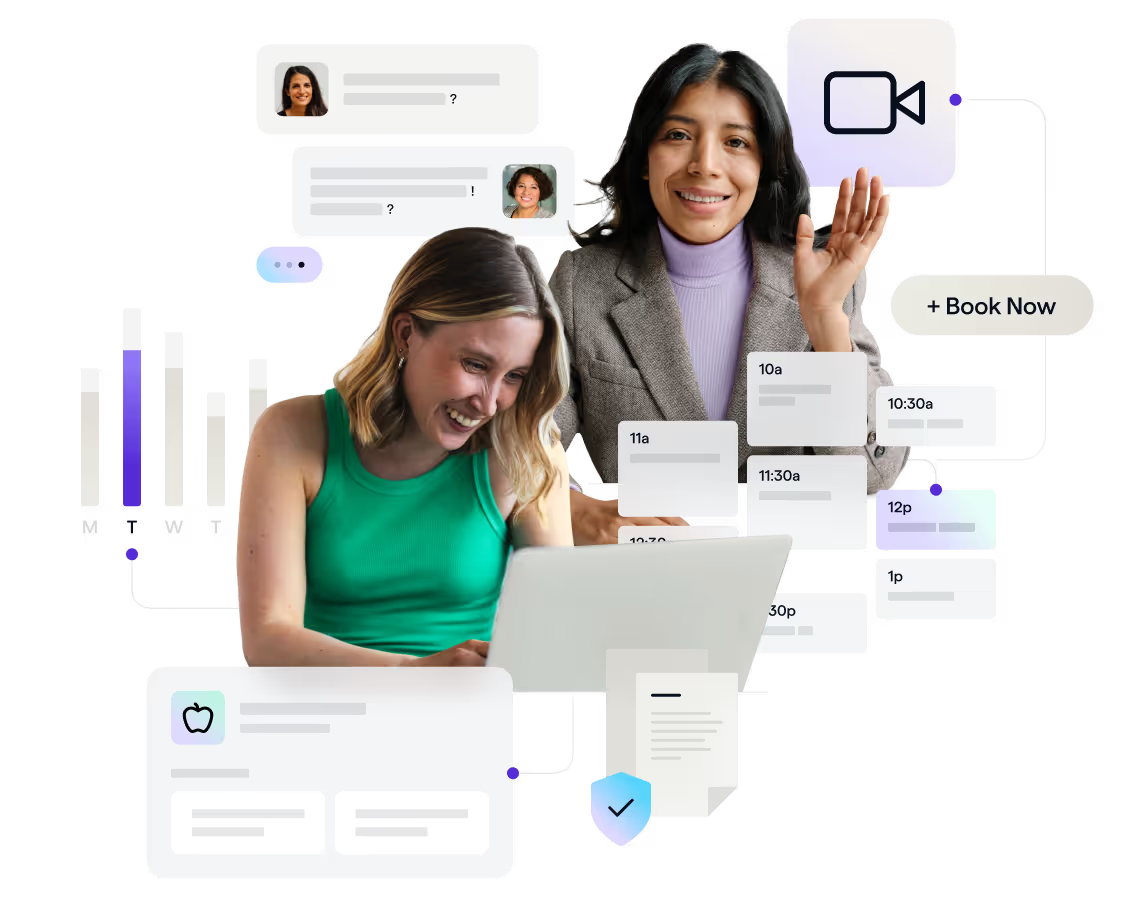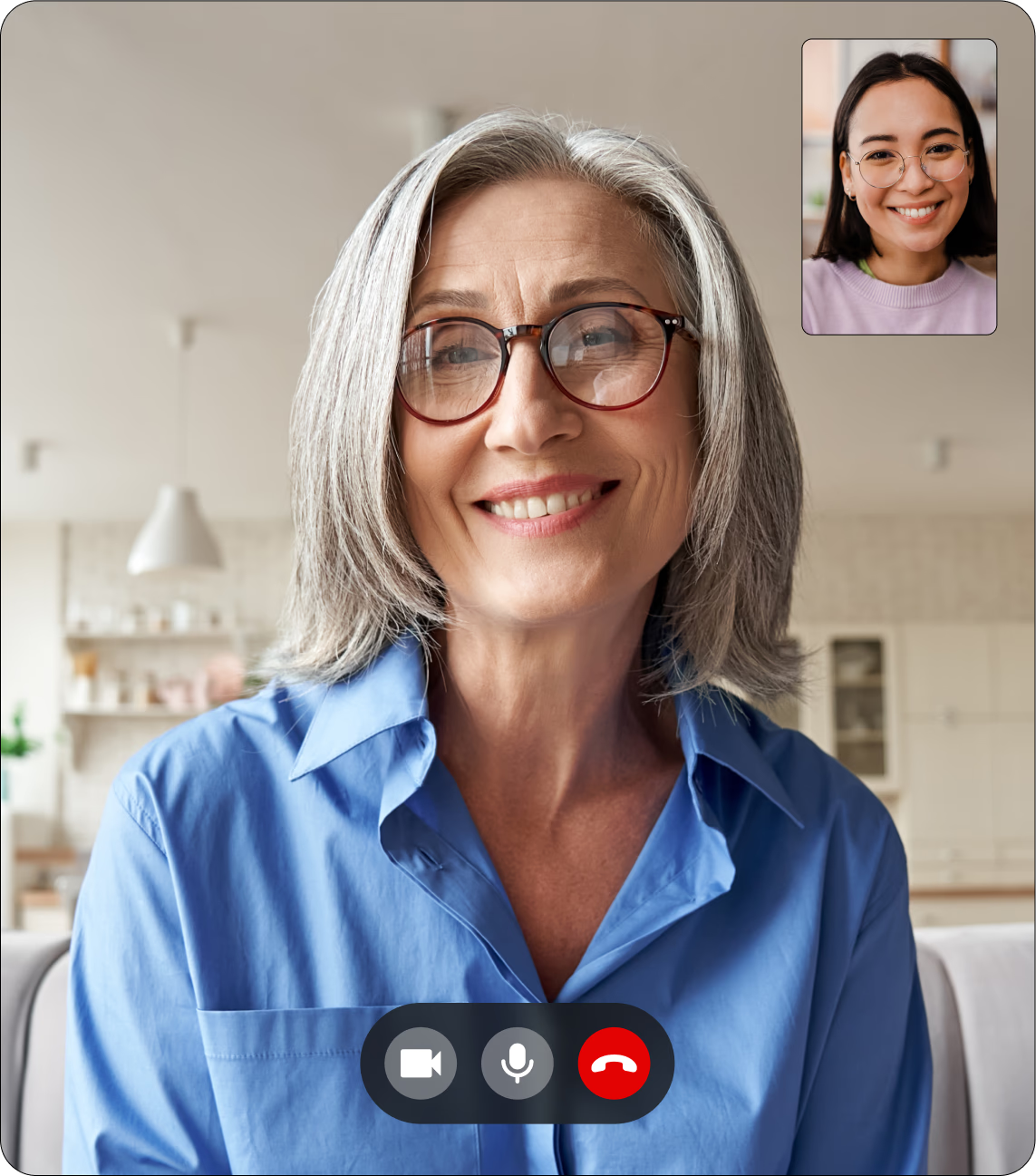

10 post-conference tips for healthcare professionals
Learn how healthcare professionals can make the most of their time at healthcare conferences, both during and after the conference.
Attending a conference is an excellent way for private practice professionals to expand their knowledge, network with peers, obtain continuing education credits, and stay current on industry trends. However, the real value of a conference often comes after the event, when you put your learnings and connections into action. In this article, we will cover the benefits of attending conferences, how to prepare effectively, and the essential steps you should take post-conference to make the most of your experience.
The benefits of attending conferences
The benefits of attending a conference go far beyond just hearing expert speakers and collecting swag from exhibitors. Conferences offer invaluable opportunities for professional development, networking, and business growth. Here are a few key benefits:
- Knowledge and Skill Development: Whether it’s learning the latest techniques, understanding new regulatory changes, or discovering innovative solutions, conferences provide practical insights that can immediately impact your practice.
- Networking Opportunities: A conference for private practitioners brings together peers and industry leaders, offering the chance to build lasting professional relationships, form collaborations, and exchange ideas.
- Business Growth: The exposure to new tools, resources, and strategies can help you enhance your services and streamline your operations. By engaging in conversations with vendors, guest speakers, and peers, you may discover solutions that can elevate your private practice.
Attending a conference can also provide inspiration and motivation for your professional life. Hearing from industry experts and learning about the latest trends can re-energize your approach to work, giving you the boost you need to implement changes and innovations in your practice.
Tips for preparing and attending a conference
While the post-conference phase is crucial, the work starts before you even set foot at the event. Here are some preparation tips to ensure you maximize your time:
- Set Clear Goals: Before attending a conference for private practitioners, define what you want to achieve. Are you looking to network, find new software solutions, or gain knowledge on a specific topic? Having clear objectives will help you prioritize your time.
- Research Speakers and Sessions: Familiarize yourself with the agenda, speakers, and breakout sessions. This ensures you don’t miss events that hold the most significance to you and your practice.
- Bring Business Cards and Digital Tools: Conferences are a prime opportunity for networking. Make sure you have business cards on hand, or use digital business card apps to quickly exchange information.
- Plan to Engage: Engage with fellow attendees, speakers, and exhibitors. Whether it's asking insightful questions during sessions or striking up conversations during networking events, active participation will enhance your conference experience.
By going in with a clear plan, you can ensure you gather valuable insights, make connections, and get the most out of the experience.
{{free-trial-signup}}
10 post conference must-dos
Once the conference is over, you’re probably tired and ready to get back to your status quo – but this is when the real work begins. Follow these ten steps to make sure you capitalize on your experience and convert your efforts into actionable strategies for your private practice.
- Review Your Notes: Take time to review any notes you took during the conference. Highlight key takeaways and ideas that you can implement in your practice. It’s easy to forget important insights once you get back to your daily routine, so make this step a priority.
- Organize Business Cards: Immediately after the conference, organize the business cards you collected. Digitize them using contact management software or apps so you can follow up with new contacts easily.
- Send Follow-Up Emails: Within a few days of the event, reach out to the people you met. Whether it’s a simple thank you or an offer to collaborate, this action will let them know that you’re open to creating lasting professional relationships.
- Share Learnings with Your Team: If you run a private practice, share what you learned with your team. This allows them to benefit from the conference, even if they didn’t attend. You could host a mini-presentation or create a summary document highlighting key insights.
- Implement New Ideas: Put the ideas and strategies you learned into practice. Whether it’s adopting a new technology, trying out a different approach to patient care, or revisiting your business model, applying new knowledge is one of the most important post-conference tasks.
- Evaluate Vendors and Solutions: If you discovered new products or services at the conference, take time to evaluate how they could fit into your practice. Whether it’s an EHR system, patient management software, or marketing tool, follow up with vendors to schedule demos and ask further questions.
- Post on Social Media or Professional Community Groups: Sharing your experience with your online community is a great way to showcase your dedication to professional growth. Post a recap of the conference for private practice on your social media channels, highlighting key takeaways and thanking the organizers.
- Reflect on Your Goals: Compare your original goals for attending the conference with what you achieved. Reflect on whether you met your objectives and identify any areas where you could improve for future events.
- Maintain Networking Momentum: Don’t let the connections you made fade. Engage with new contacts on LinkedIn, join relevant groups, or attend webinars they may be hosting.
- Plan for the Next Conference: With all the knowledge and experience you’ve gained, start planning for your next conference. Evaluate what worked well and what didn’t during this event and adjust your strategy accordingly.
By following these 10 steps, you’ll be able to make the most of your post-conference experience and reap the long-term benefits of attending industry events.






